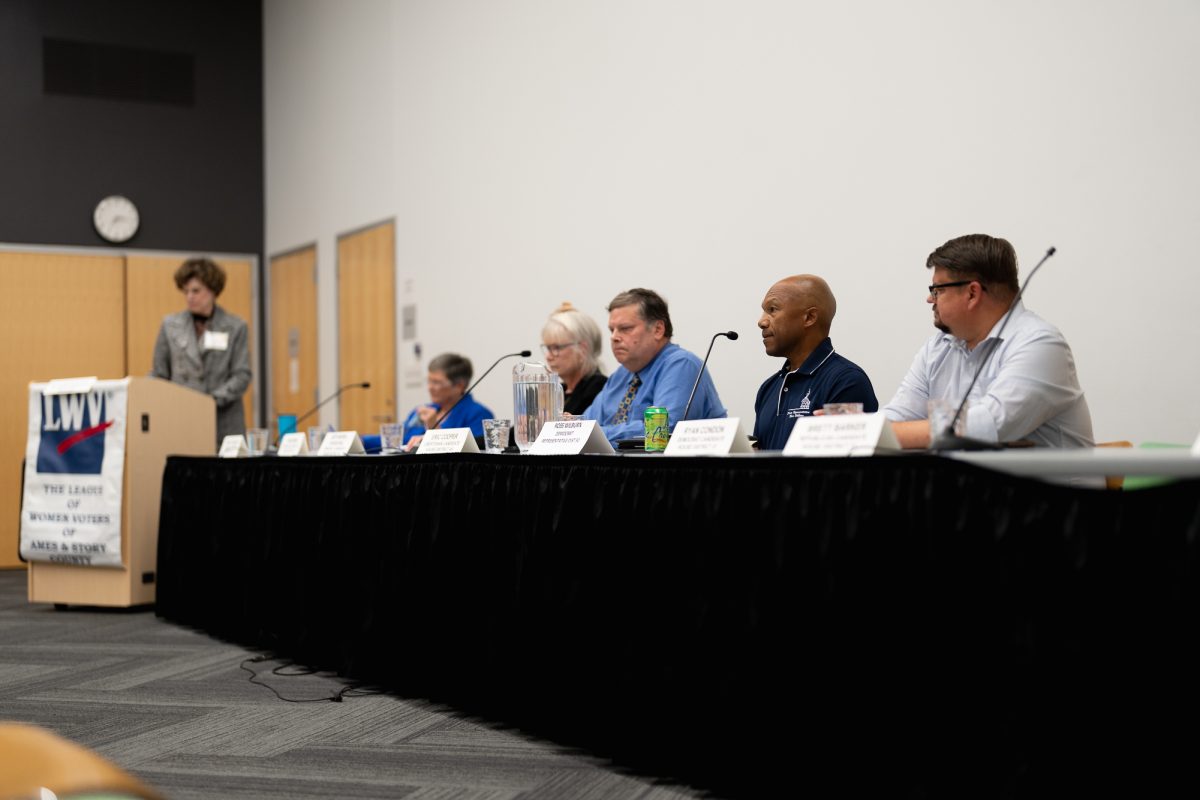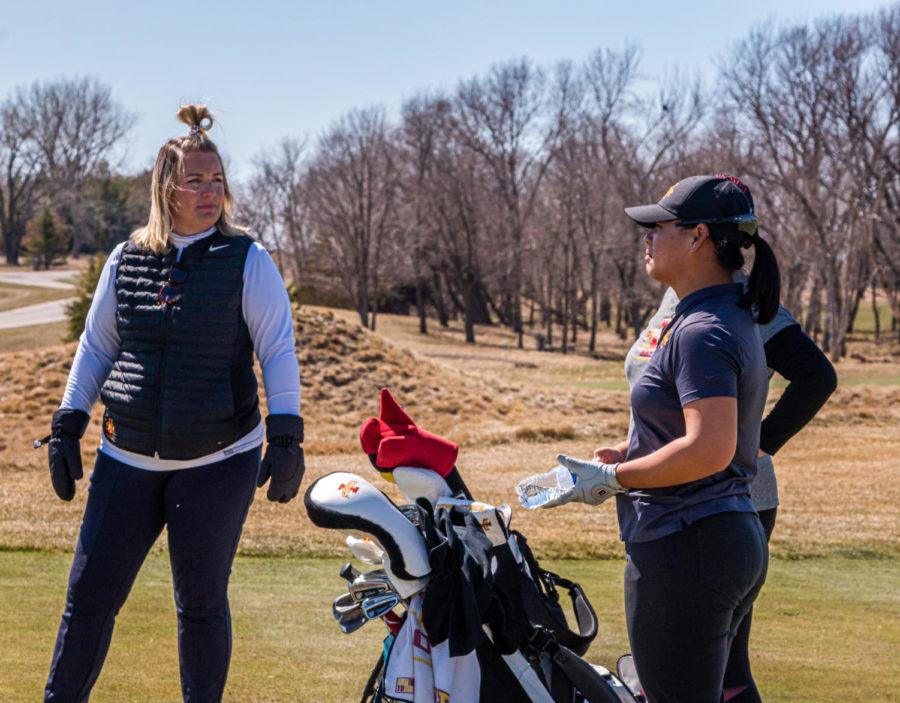ISU alum Selha discusses nature of queer theory in ‘Stone Butch Blues’
April 1, 1998
A.D. Selha’s presentation, “Stone Butch Blues Half (Un)Zipped: The Body of the Text Revealed,” intertwined personal experience and interest in transsexual, transgender and queer theory.
Selha, Iowa State graduate, presented his research to a small group of eight students in the Memorial Union on Tuesday.
Raised as a girl but now a transgender, Selha became interested in these topics when dealing with his own gender and identity.
In his presentation, he shared excerpts from “Nearly Roadkill,” a story written in cyberspace about a “girl” trying to avoid dealing with her gender in a community that wouldn’t let her avoid the subject of her sexuality. “The story allows readers to see the relationship between community ways of looking at sexuality and gender and personal ways when dealing with it,” Selha said.
He also used overheads with passages from a novel used for his research, “Stone Butch Blues,” to tell about a transgender/transsexual character named Jess who was dealing with her sexuality.
“Jess” talks in the novel about her identity problems and how she felt sometimes like a non-person, not wanting to be either female or male, Selha said.
He then told about Jess’ experience of finally feeling successful about not having a gender, when she could “go into a bathroom whenever and wherever” she wanted.
Selha ended with a statement that “gets to the issues about identity feminism and queer theory about the body,” he said.
The statement was written when a transgender/transsexual was murdered in Nebraska, and it says the killing isn’t an isolated incident for transgenders and transsexuals.
“It is very indicative in the way transgenders, bisexuals, queers and transsexuals are working together to create alliances between each group. Despite this violence, I am heartened to see alliances among these groups,” Selha said.
When asked by the audience what he would like to do next with his research, Selha said he would like to enter the field of education and eventually teach about the topic of his research.






